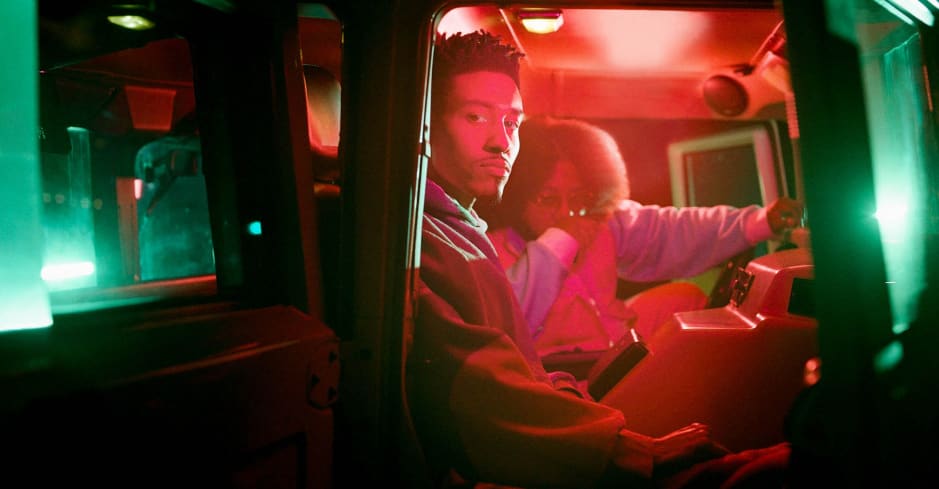#How Mike Anderson is helping St. John’s fight racial injustice
“#How Mike Anderson is helping St. John’s fight racial injustice”
The death of George Floyd, following the deaths of Ahmaud Arbery and Breonna Taylor, had led to civil unrest in America, protests nationwide in the midst of the novel coronavirus pandemic. And for the St. John’s coach — one of two black Division I head coaches in the state — racial injustice weighed heavily on his mind.
“It was like murder, you could see it on TV,” he said. “It touched my soul without a doubt. I went through the range of emotions. Anger, frustration, what can I do? … I was really, really hurt by it.”
His players, most of them black, felt similar emotions, he said. Some of them have been involved in protests, though Anderson declined to single them out specifically.
They have had four team-wide Zoom sessions since the season abruptly ended on March 12 after the first half of a Big East Tournament quarterfinal game against Creighton, and during some of the sessions, the team has specifically discussed the issues of racial inequality and police brutality. Ironically, during one of them, David Caraher, a white player, was one of the first players to speak up. He preached unity, the need for everyone to work together to make a difference and be part of the solution.
With that in mind, the 60-year-old Anderson said he plans to have the entire team register to vote and said that there will not be any basketball activities on Nov. 3, announcements other programs have made recently as well.
“Without a doubt, we’ll be first in line,” said Anderson, who previously served as the first black head coach at Missouri. “Our concentration will be getting to those polls.”
That is only part of the plan Anderson has in mind. He wants his players to get out even more in the community and serve as role models. Every season since he’s become a head coach, Anderson has had a high-ranking member of the police department meet with his players, in an effort to provide them with a different perspective. He’s spent his free time recently meeting and talking to public officials in the area and in his home state of Alabama, looking for ways to help.
“I’m a black coach, so obviously I’ve lived what we’re seeing,” Anderson said. “And now I’m in a position where I can try to make a difference — and try to make a difference through my players. … It’s an awesome responsibility, and it’s one that I welcome.”
He’s dealt with racism up close. Anderson grew up in Birmingham, Ala., one of the epicenters of the civil rights movement. He remembered not going to restaurants until he was in his late teens. Blacks lived on one side of town and whites the other. In his neighborhood, hospitals were impoverished, and schools were underfunded. As a black coach, he saw limited opportunities.
“I could write a book on that,” Anderson said. “And then you got to remember now also, I was on the front line for a Hall of Fame coach in Nolan Richardson, who’s been the first black coach at a majority white institution to go in there, so you can imagine all the things that took place even with him at Arkansas.”
The players seem to appreciate what they have in Anderson. Incoming junior college recruit Isaih Moore recently tweeted, “Proud to say I’m going to play for a African American Head Basketball Coach.” Greg Williams Sr., the father of rising junior guard Greg Williams, said: “It provides a certain level of security, when you have a coach that has experience and can provide that guidance and tell you some things you might experience and some things you might need to do if you go through it.”
In recent weeks, Anderson has been encouraged by the diversity at the protests. It’s not just black men and women protesting. There are demonstrators from all walks of life coming together, in all 50 states. He has painted this as a positive development to his players. But more work needs to be done to rectify systemic racism, injustice and inequality in the healthcare system, education, police reform and disparity in jobs and salaries, he believes.
His message to his players?
“Let’s continue to push the envelope in the right direction, evolve and we can make a change. [My team has] talked about coming back to the school and hopefully becoming a part of the solution. Do their part, that’s the biggest thing.
“This is a moment,” Anderson added, “where we can change the world.”
If you want to read more Sports News articles, you can visit our General category.
if you want to watch Movies or Tv Shows go to Dizi.BuradaBiliyorum.Com for forums sites go to Forum.BuradaBiliyorum.Com




